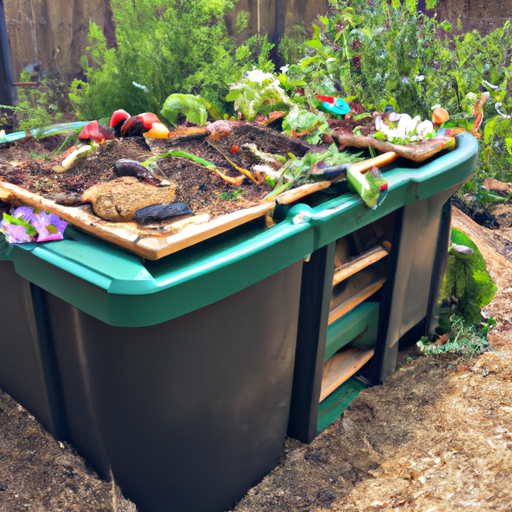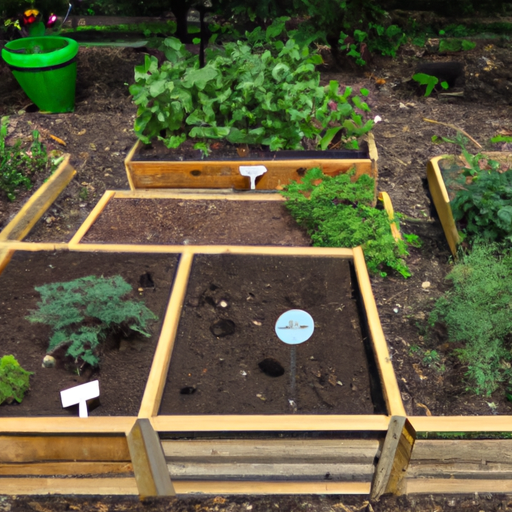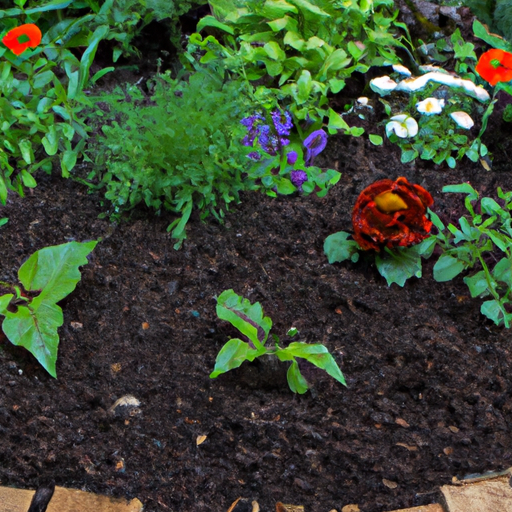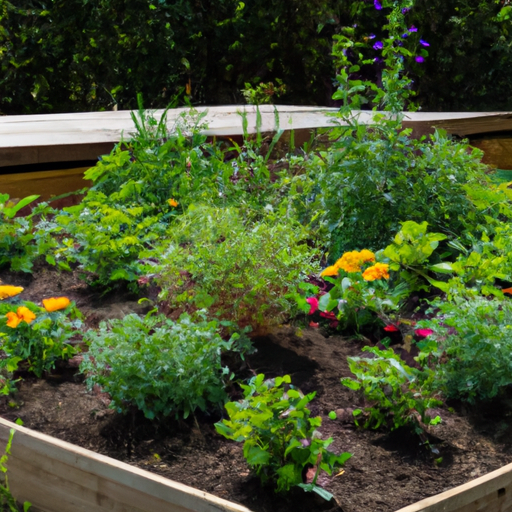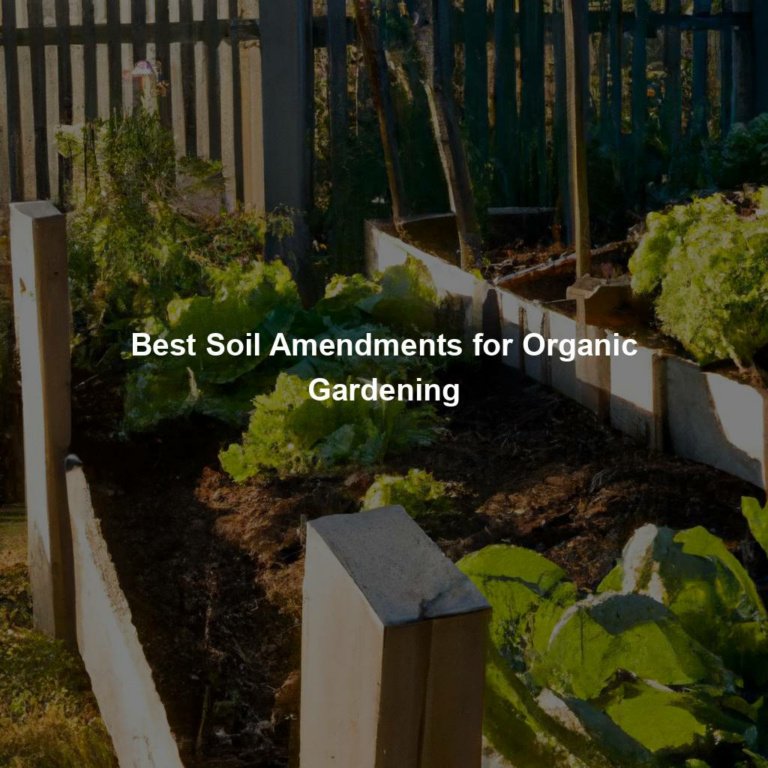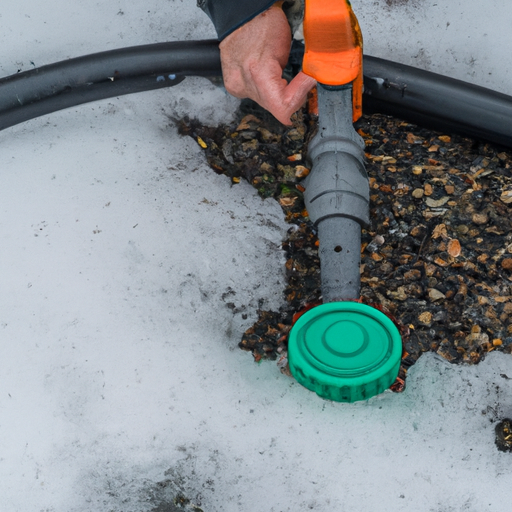Are you tired of seeing your organic garden destroyed by pests? Do you want to find a way to control them without resorting to harmful chemicals? Look no further than Integrated Pest Management (IPM), the method that allows for natural pest control while still maintaining the integrity and health of your organic garden.
As a Master Gardener, I have seen firsthand the benefits of IPM. By using a combination of cultural practices, biological controls, and if necessary, minimal use of pesticides, we can keep our gardens healthy and free from destructive pests.
In this article, we will explore what IPM is all about, why it’s important for organic gardening, and how you can implement it in your own backyard.
Understanding Integrated Pest Management
Integrated pest management (IPM) is a crucial practice for any organic gardener. By utilizing IPM techniques, gardeners can control pests and diseases while minimizing the use of harmful pesticides that could harm beneficial insects and contaminate soil and water.
However, implementing an effective IPM strategy comes with its own set of challenges. It requires careful monitoring of plants to detect early signs of infestation or disease, as well as knowledge of natural predators and other non-toxic methods for controlling pests.
Despite these obstacles, the benefits of using IPM in organic gardening are numerous. Not only does it promote plant health and reduce environmental impact, but it also encourages biodiversity by creating habitats for beneficial organisms like pollinators and predators.
With proper understanding and implementation, integrated pest management can be a powerful tool for maintaining a healthy, sustainable garden ecosystem.
Identifying Common Garden Pests
Identifying common garden pests is an essential part of integrated pest management for your organic garden.
By knowing what to look for, you can prevent infestations before they become a problem.
Some common pests include aphids, slugs, snails, and caterpillars.
One way to control these pests is by introducing natural predators into your garden such as ladybugs for aphids or nematodes for soil-borne insects.
Additionally, practicing good cultural practices like crop rotation and proper watering techniques can also help deter pests from taking over your garden.
Keep in mind that not all bugs are bad and some may actually be beneficial to your plants’ growth!
Implementing Cultural Practices For Pest Control
As a Master Gardener, it is important to understand cultural practices for pest control in your organic garden.
Companion planting involves growing plants that benefit each other while deterring pests. For example, marigolds can be planted with tomatoes to repel nematodes and attract beneficial insects like ladybugs.
Additionally, crop rotation helps prevent the buildup of soil-borne pests by alternating plant families each season. This method also improves soil health and reduces the risk of disease outbreaks.
By implementing these cultural practices, you can reduce the need for chemical pesticides and maintain a healthy ecosystem in your garden.
Using Biological Controls For Pest Management
As a Master Gardener, one of the most effective ways to control pests in your organic garden is by using biological controls. Biological controls are natural predators or parasites that can help maintain pest populations at manageable levels. Not only do they reduce the need for harmful chemicals, but they also provide benefits of biodiversity and promote a healthier ecosystem overall.
When selecting beneficial insects for your garden, it’s important to consider their specific prey preferences and habitat requirements. Here are some tips to get you started:
– Research which beneficial insects are native to your area and identify those that target the pests in your garden.
– Provide plants that attract beneficial insects with nectar, pollen, and alternate food sources.
– Avoid using broad-spectrum pesticides as they may harm both beneficial and harmful insects alike.
– Encourage biodiversity by planting a variety of different plant species throughout your garden.
– Regularly monitor your garden for pest activity so you can take action before damage becomes severe.
By incorporating these strategies into your integrated pest management plan, you’ll be able to effectively control pests while promoting a healthy and diverse ecosystem in your organic garden.
Minimizing Pesticide Use In Your Garden
As a Master Gardener, minimizing pesticide use is essential in maintaining the health of your organic garden. Fortunately, there are many natural alternatives to synthetic pesticides that you can use to control pests without harming beneficial insects or contaminating the environment. One effective method is companion planting, which involves growing plants next to each other that have complimentary properties. For example, planting marigolds near tomatoes can deter aphids and other harmful insects while attracting bees for pollination. In addition, incorporating herbs like basil and mint can repel mosquitoes and flies while adding flavor to your meals. By using these natural methods instead of relying on chemical pesticides, you can create a thriving garden ecosystem that supports both plant growth and biodiversity.
Frequently Asked Questions
Can Integrated Pest Management Be Used In Large-Scale Farming Operations?
Can IPM be utilized in large-scale farming operations?
Well, the answer is yes. The benefits of IPM extend far beyond just small organic gardens and farms. Implementing integrated pest management on a larger scale can significantly reduce costs associated with pesticide use while simultaneously improving crop yields and quality.
However, there are some challenges that come along with implementing IPM in large operations such as increased labor costs for monitoring pests and diseases, lack of knowledge or training among farmers, and resistance from conventional agriculture practices. Nevertheless, these challenges can be overcome through proper education, collaboration between experts and farmers, and consistent implementation methods.
As a Master Gardener, I highly recommend exploring the possibilities of incorporating IPM into your farming operation to reap its many benefits to both your crops and our environment.
How Can I Attract Beneficial Insects To My Garden?
Attracting beneficial insects to your garden is crucial for creating a healthy and thriving ecosystem.
Companion planting is an excellent way to achieve this goal, as it involves pairing plants that work well together, attracting pollinators and deterring harmful pests at the same time.
Additionally, homemade insect repellents can be used to keep destructive bugs away from your crops without harming helpful creatures like ladybugs or lacewings.
By implementing these techniques, you’ll create a balanced environment in which beneficial insects will thrive and help protect your organic garden naturally.
What Are Some Natural Ways To Control Pests Without Using Pesticides?
As a Master Gardener, I understand the importance of maintaining an organic garden without using harmful pesticides.
There are natural ways to control pests that won’t harm your plants or soil.
Companion planting is one technique where certain plants are grown together to deter pests and attract beneficial insects.
For example, marigolds can repel nematodes while attracting ladybugs.
Another effective method is homemade pest remedies such as garlic spray for aphids or neem oil for mites.
These safe alternatives not only protect your garden but also promote a healthy ecosystem.
Is It Necessary To Hire A Professional To Implement Integrated Pest Management In My Garden?
When it comes to implementing integrated pest management strategies in your garden, there are both pros and cons to hiring a professional versus using DIY techniques.
While hiring a professional can provide expert knowledge and experience, it can also be costly.
On the other hand, opting for DIY methods may save you money but require more time and effort on your part.
Ultimately, the decision depends on your personal preferences and level of expertise in gardening.
However, with proper research and education, anyone can successfully implement effective integrated pest management practices in their organic garden.
How Do I Know If My Pest Management Plan Is Working Effectively?
To effectively manage pests in your garden, you must monitor and measure the success of your plan.
There are various monitoring techniques you can use, such as visual inspections, sticky traps, and pheromone traps.
By consistently checking for pest activity and damage, you can determine if your management plan is working effectively.
Measuring success involves tracking changes in pest populations over time and evaluating how well your chosen control methods are reducing their numbers.
Remember that a successful pest management plan isn’t just about eliminating pests but also maintaining a healthy balance between pests and beneficial organisms in your garden ecosystem.
Conclusion
As a Master Gardener, I highly recommend using Integrated Pest Management (IPM) in your organic garden. Not only is it effective, but it also promotes the use of natural methods to control pests without harming beneficial insects or the environment.
Did you know that nearly 90% of pest problems can be managed with IPM techniques alone? That’s right – by implementing IPM strategies such as crop rotation, companion planting, and monitoring for early signs of infestations, you can greatly reduce the need for pesticides.
Attracting beneficial insects like ladybugs and lacewings to your garden is another key component of successful IPM. By providing them with flowers such as marigolds and daisies, they’ll help keep your garden free from harmful pests.
Additionally, there are many natural ways to control pests without resorting to chemicals. For example, spraying plants with neem oil or using diatomaceous earth around the base of plants can deter common garden pests like aphids and slugs.
While hiring a professional may not be necessary for small-scale gardens, larger operations may benefit from consulting an expert in IPM practices. However, by taking the time to educate yourself on proper pest management techniques and staying vigilant against potential threats to your crops, you can effectively implement an IPM plan on your own.
Remember to constantly evaluate whether your plan is working effectively by regularly checking for pest activity and adjusting strategies accordingly. With these tips in mind, your organic garden will thrive while promoting healthy ecosystems at the same time!

